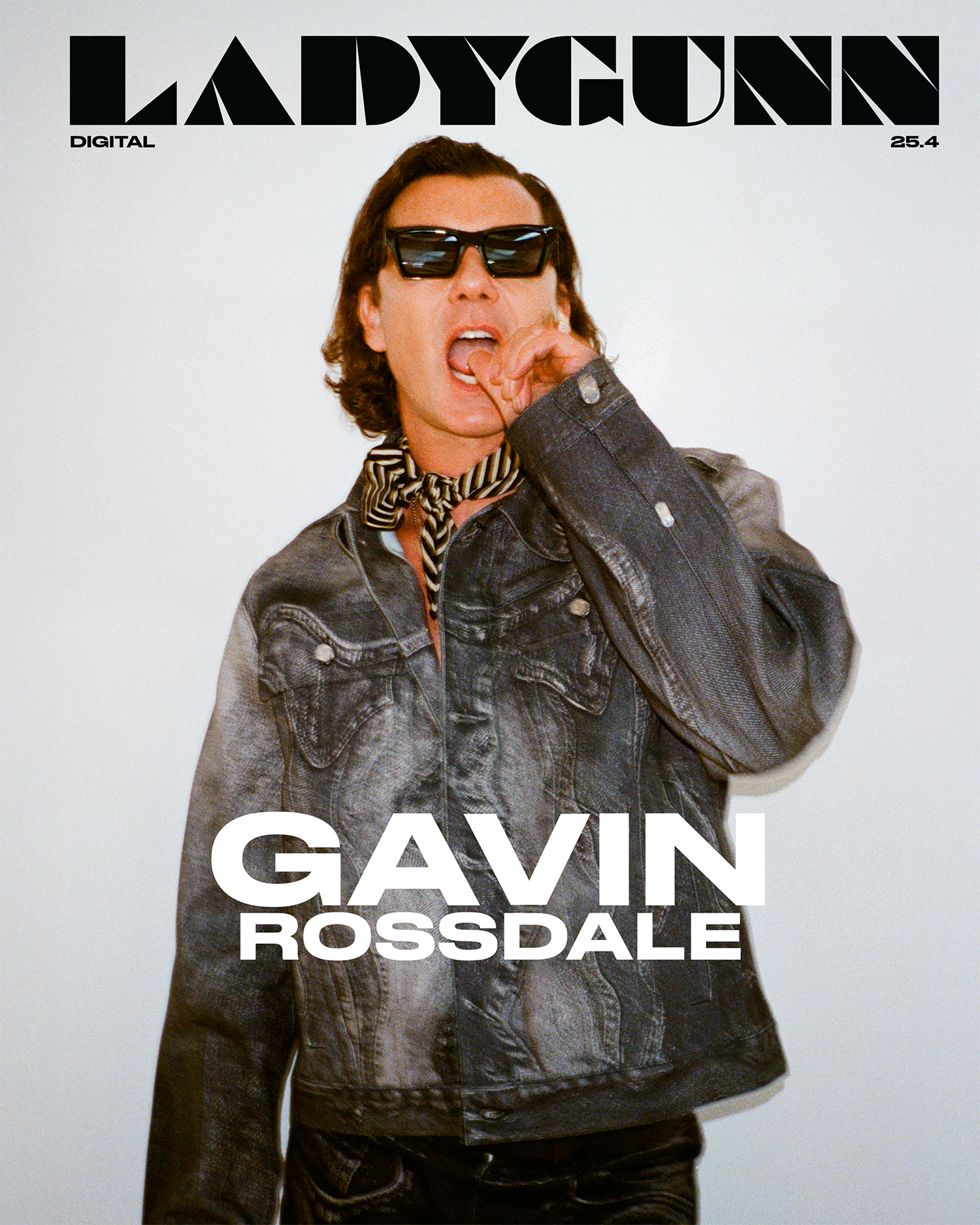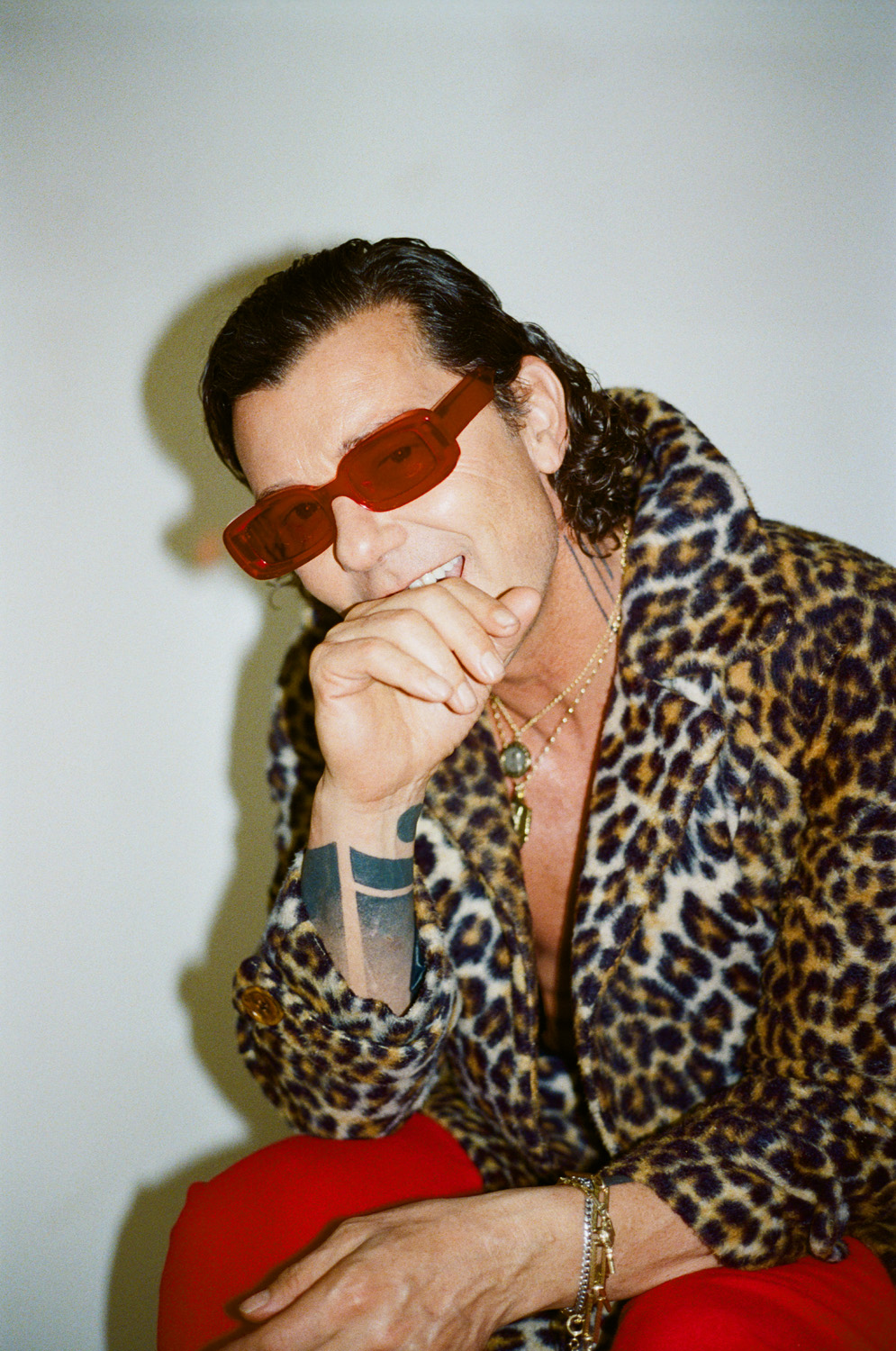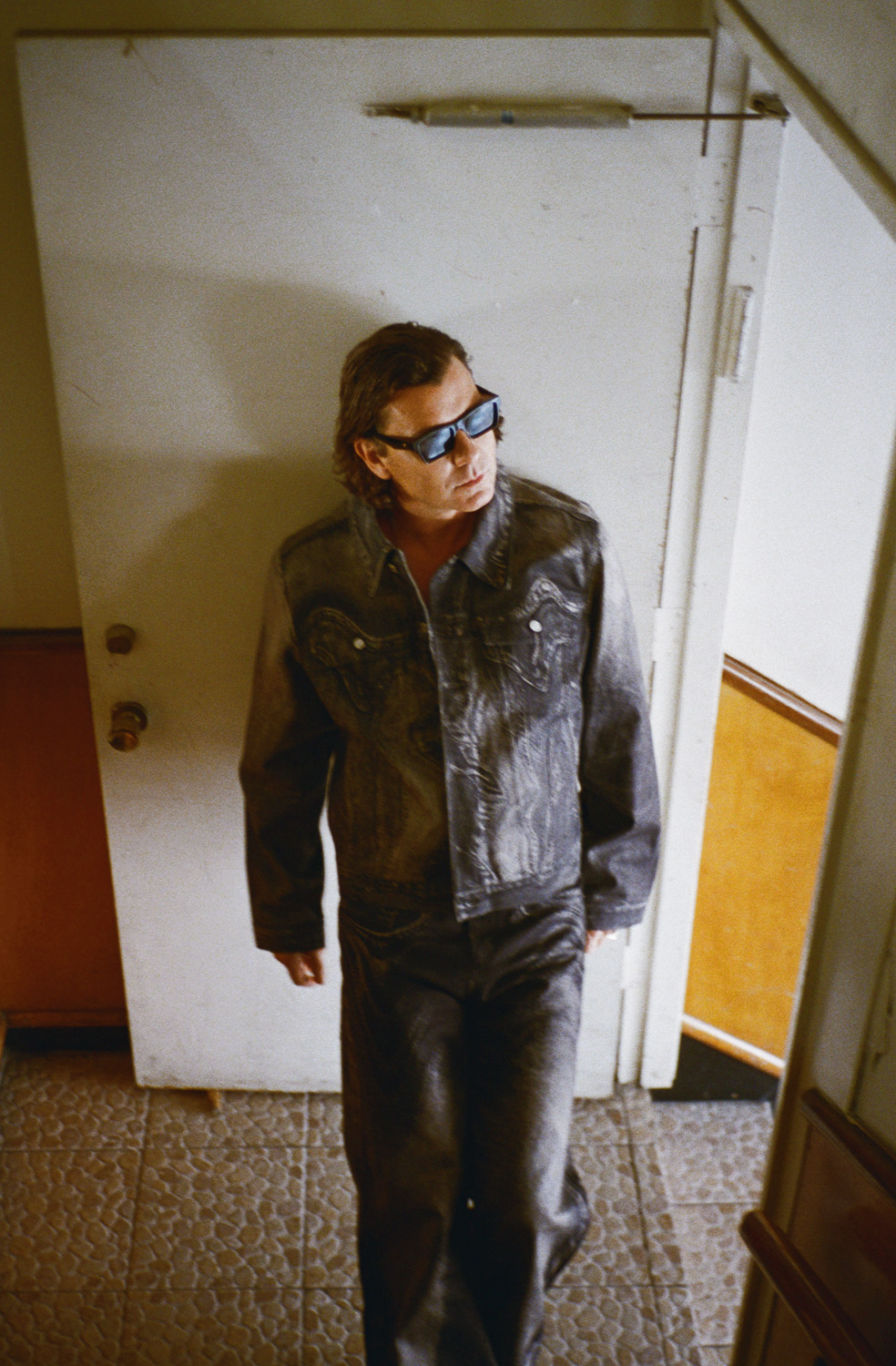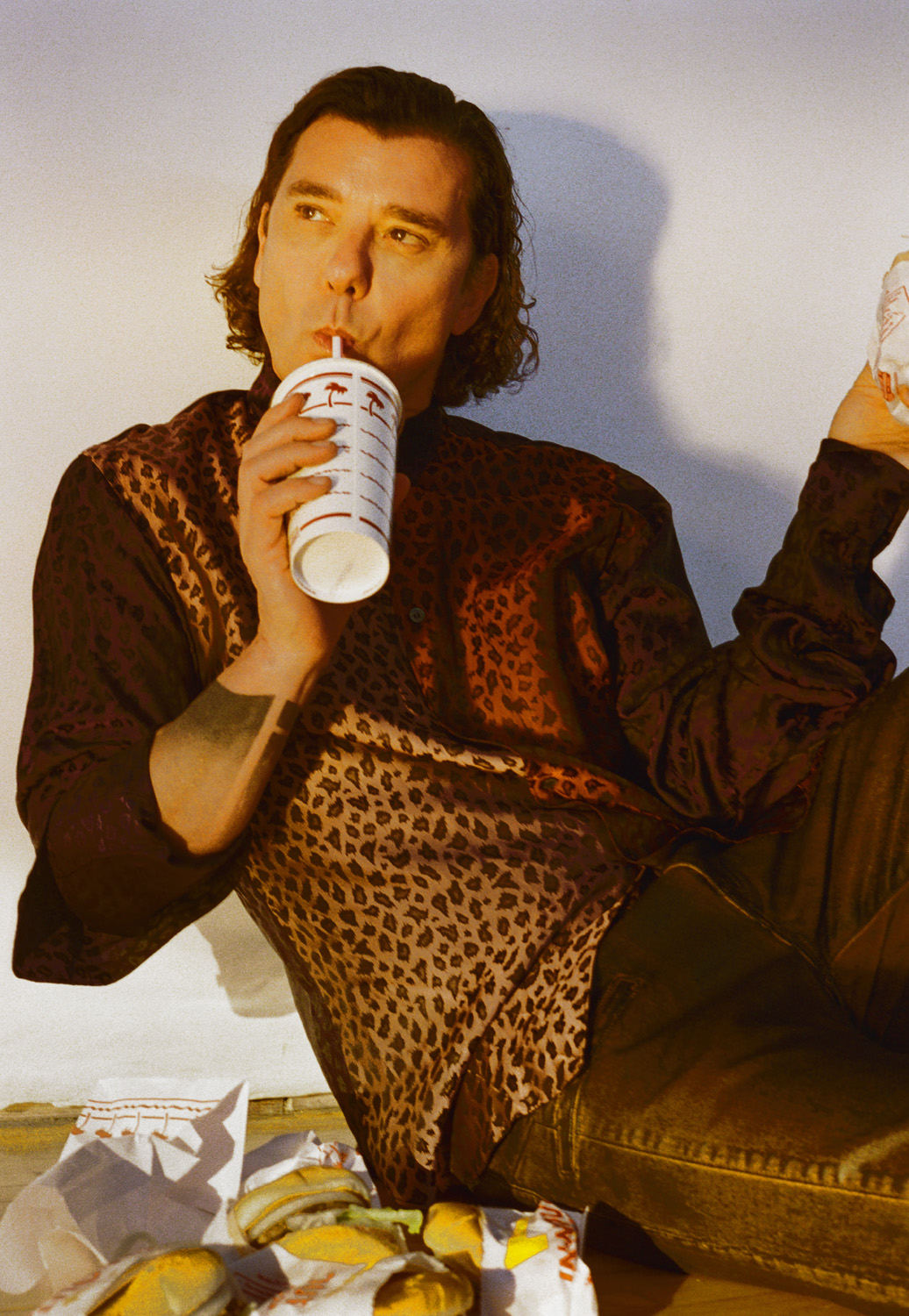Story/ Koko Ntuen @kokontuen
Photos / Jason Rodgers @jasonrodgersphoto w/@thisrepresents
Styling / Matthew Simonelli @mjsimonelli
Grooming / Crystal Lozada @crystallozada
THANK YOU LOS ANGELES APPAREL! WE LOVE YOU DOV + JARED + TEAM!!
Los Angeles is on fire, and we have two hours to find a place to shoot Gavin Rossdale. The clock is ticking, and the sky has just turned an ominous shade of gray when I call an old friend in a panic.
“Dovvvv!” I cry into the phone. “We were supposed to shoot in Laurel Canyon today, but we had to evacuate, and I need a place to shoot this really big rockstar for LADYGUNN.”
“KOKO! How are you? Calm down! What is it now?”
I go on to explain the situation. Los Angeles is literally on fire. People are losing their homes and their things, the air smells, ashes are falling everywhere, and it’s super windy, but Gavin Rossdale is still down to shoot, so we have to find a place ASAP. A few questions, calls, and catering cancellations later, the team is on their way to the Los Angeles Apparel Factory in South Central LA.
The directions are simple: Meet us in the alleyway by the food trucks and graffiti-covered utility doors. A “guy” will walk you into the hustle and bustle happenings of a factory, through a maze of buzzing industrial sewing machines and aisles of boxed-up fabric, down the hall, up the stairs to the right, past the office of a Hasidic Jew, and down a flight of wobbly steps into a basketball court turned photo studio.
In-person, Gavin has a part God, part Hollywood dad stature. He is taller than you’d imagine and takes up space in a good way like he would be the first to act in an emergency and definitely could hold his own in a bar fight. I met him once, backstage after a Bush concert in Washington, D.C.
There is a commemorative photo on my Instagram feed of Gavin holding my baby, with comments underneath like, “GIRL, WHAT?” and “Is that Gavin Fucking Rossdale?!!”
For many of us, Bush was part of the soundtrack to our lives. The band, founded by Rossdale as a burgeoning musician in the UK, went on to become one of the highest-grossing and icon-cementing cultural artifacts of the 1990s into the 2000s. Bush’s dystopian rock lullabies sonically etched themselves into the ebb and flow of a chaotic, post-modern world, spinning us all on our heads.
Gavin looks back at that time fondly. “I remember the electricity of it. It was like living with your finger in a plug socket. It was just such an exhilarating time. I was nuts…”
A generation of kids watched the Bush frontman grow from a “grunge” expat to a stadium-sized rocker who made music history and tabloid fandom. It’s hard to envision the sensationalism Rossdale might have experienced at the height of fame. It was an era of relentless, boundary-crossing paparazzi that made millions off salacious celebrity gossip and parasocial ideals. It seemed to be a well-oiled machine that saw the artist’s double-tiered, high-profile relationships become a part of the pop cultural lexicon. He’s seen his share of being villainized, idolized, and objectified in the news cycle.
“I never paid it too much attention,” he says of tabloid covers. “Sometimes I was attacked for looking a certain way—as if that disqualified me from having emotions…which is quite absurd when you think about it and is much more a reflection of the journalist…” Gavin ponders for a moment, leaning gracefully over the edge of a folding chair before he continues. “When your life implodes, if you’re an artist, you create your way out of it. You make a different world. It’s a wild subject. Why do we do the things we do? Why do we self-sabotage?”
Few have managed to navigate the rocky terrain of celebrity, time, and personal life as eloquently as Gavin McGregor Rossdale, especially as a person who describes himself as a “blush until the age of 18 if someone asked me a question” kind of guy. He’s a reluctant heartthrob and finds the idea of celebrity semi-crass. He doesn’t expect everyone to know anything about him, and he certainly doesn’t seem interested in gossip or rumors. Trying to bait him into talking about famous exes or flings is met with English pleasantries and carefully guarded glances. The Japanese philosophy of Kaizen resonates with him.
“My dedication is to trying to be a musician, trying to understand it, and growing all the time. I study, but I need to study more and understand it more. It’s getting closer to my craft—it’s a vocation. I like to think that I gave my whole life to music. So every day, I take a responsibility to myself to try and be a little better.”








